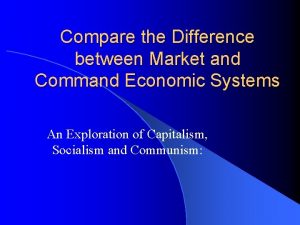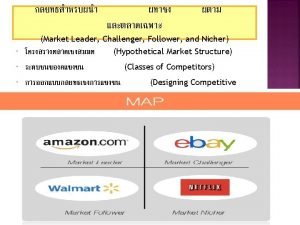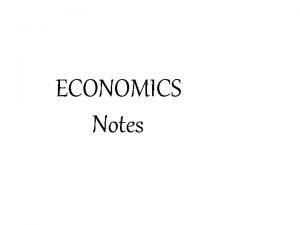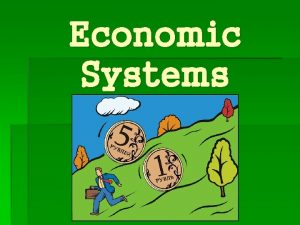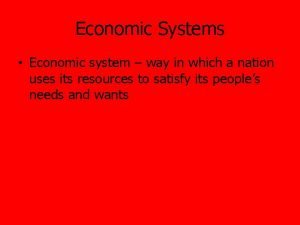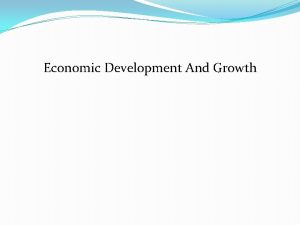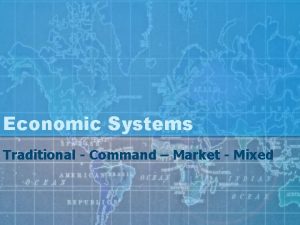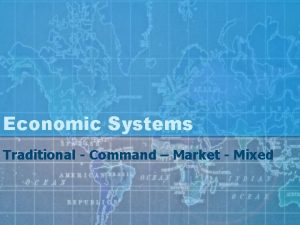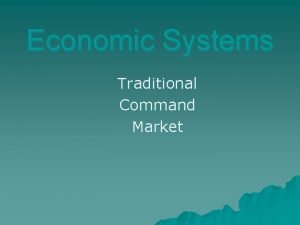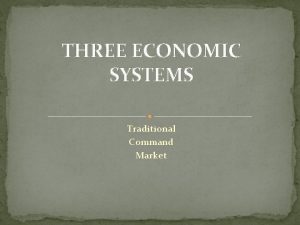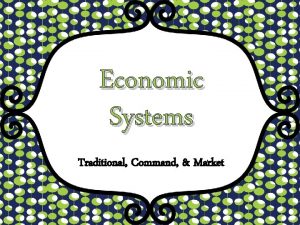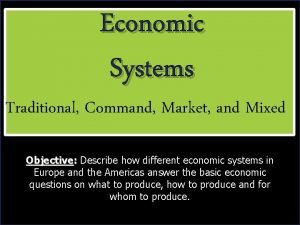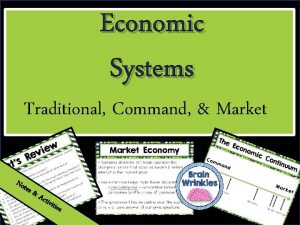Economic Systems Traditional Command and Market AllocationOwnership of








- Slides: 8

Economic Systems Traditional, Command, and Market

• Allocation/Ownership of resources: • Based on rituals, habits, or customs • Historical precedent • Source of Economic Decisions: • Based on custom and beliefs • People are NOT free to make own decisions • Role of Workers: • Family Tradition • Examples: • Don’t really exist anymore • Native American societies and India in the past were like this. Traditional Economy

• Advantages: • Family and community ties are strong • Sets economic roles for all members • Stable, predictable, and continuous for life • Disadvantages: • Change is discouraged • Inefficient production • Lack of progress Traditional Economy cont.

• Allocation/Ownership of Resources: • Central government makes all decisions • Source of Economic Decisions: • Government • Roles of Workers: • Freedom to choose jobs is restricted • Examples: • Cuba, North Korea, China Command Economy (Communism)

• Advantages: • Capable of dramatic changes in a short time • Resources can be quickly re-routed • Income distribution is controlled by the gov. • Disadvantages: • Does not meet the needs of consumers • Lacks incentives to get people to work • New ideas are discouraged Command Economy cont.

• Allocation/Ownership of Resources: • Privately owned by individuals • People use own best interest to make a profit • Based on supply and demand • Source of Economic Decisions: • Individuals and businesses • Role of Workers: • Free to choose jobs • Examples: • United States, Great Britain, Japan Market Economy

• Advantages: • • Consumer choice is large Competition Consumer sovereignty Lack of gov. interference • Disadvantages: • Rewards only productive resources • Little incentive to engage in unprofitable ventures. • Ex: caring for the old, sick, homeless Market Economy cont.

• Has characteristics of both Market and Command economies. • Most modern day economies are mixed. • The United States has a Mixed-Market economy. • Most businesses are privately owned by people, not the government • Government regulates things like: • Minimum wage • Child labor • FDA Mixed Economy
 Chapter 1 lesson 2 our economic choices worksheet answers
Chapter 1 lesson 2 our economic choices worksheet answers Difference between segmentation targeting and positioning
Difference between segmentation targeting and positioning Similarities between market and command economy
Similarities between market and command economy Market leader challenger follower nicher
Market leader challenger follower nicher Command economy pictures
Command economy pictures Economic system mixed
Economic system mixed Command economy
Command economy Command economy pictures
Command economy pictures Economic development vs economic growth
Economic development vs economic growth


